Your website is the digital storefront for your business. It’s where customers find you, learn about your products, and make purchases. But what if one day, your site is suddenly offline, displaying a strange message, or sending out spam emails? This can happen when your website’s host gets hacked. It’s a stressful situation for any small business owner, but understanding the problem is the first step toward fixing it.
This post will explain what a hosting hack means for your business. We will look at real examples and give you simple, actionable steps to protect your online presence. You’ve worked hard to build your business, and we want to help you keep it safe.
Understanding Web Hosting and Its Risks
Think of your website host as the landlord for your website. You rent space on their server, which is a powerful computer that stores all your site’s files and makes them available to visitors on the internet. When someone types your web address into their browser, the server delivers your site to them.
Because your website lives on this shared or dedicated space, a security problem at the hosting level can put your site in danger. Hackers often target hosting providers because they can gain access to thousands of websites at once. A single vulnerability can create a massive opportunity for cybercriminals.
What Does a Hosting Hack Look Like?
A hosting hack is not always obvious. Sometimes the changes are subtle, designed to go unnoticed for as long as possible.
Common signs include:
- Website Defacement: The most visible sign is when your homepage is replaced with a hacker’s message, logo, or other strange content.
- Malicious Redirects: Visitors trying to reach your site are sent to scam websites, adult content, or pages selling illegal products. This can quickly ruin your brand’s reputation.
- Spam Emails: Your server might be used to send out thousands of spam emails, getting your domain blacklisted by email providers.
- Stolen Information: Hackers can steal sensitive customer data, including names, email addresses, and payment information, leading to huge legal and financial problems.
- Poor Performance: Your website might become extremely slow or go offline completely.
Real World Examples of Hosting Hacks
To understand the impact, let’s look at some real incidents. These examples show how devastating a hosting hack can be for businesses of all sizes.
The GoDaddy Breach and Its Ripple Effect
In 2021, the hosting giant GoDaddy announced a major security breach. Hackers gained unauthorized access to the system used to manage their customers’ WordPress websites. This was not a small issue. The breach affected up to 1.2 million active and inactive WordPress users.
The attackers stole email addresses, customer numbers, and the original WordPress admin passwords. Even worse, they gained access to private keys that allowed them to connect to customers’ servers. For small businesses using GoDaddy’s managed WordPress service, this meant their websites were completely exposed. The incident forced a massive password reset and highlighted how even the biggest names in hosting are vulnerable.
DreamHost’s Data Exposure
DreamHost, another popular web host, experienced a breach where customer usernames and passwords were stolen from an internal company database. The attackers then used this information to access customer accounts and websites.
The consequences were immediate. Some business owners found their websites defaced, while others discovered malicious code had been inserted into their site’s files. This code was often designed to steal information from website visitors. DreamHost had to work quickly to secure its systems and guide customers through the cleanup process, but the damage to trust was significant.
What a Hosting Hack Means for Your Business
When your host is compromised, the fallout can be severe. It’s more than just a technical headache. It’s a business crisis.
Loss of Revenue and Trust
Your website is a source of income. If it’s offline or redirecting to spam sites, you are losing sales every minute. Customers who have a bad experience are unlikely to return. A security breach erodes the trust you have built with your audience. News of a hack can permanently damage your brand’s reputation.
SEO Penalties
Search engines like Google take website security very seriously. If they detect malware, redirects, or other signs of a hack, they will add a warning to your search results. You might see a message like “This site may be hacked” appear under your listing. This warning scares away potential visitors. Your site’s ranking will plummet, undoing all your hard work on search engine optimization.
Legal and Financial Consequences
If your customers’ personal data is stolen, you could face serious legal trouble. Data privacy laws require you to protect customer information. A breach can lead to large fines and expensive lawsuits. You will also have to spend money on professional cleanup services, security audits, and communicating with your customers about the incident.
Practical Steps to Protect Your Website
You are not powerless against these threats. While you can’t control your host’s security completely, you can take several steps to build a strong defense for your own website.
1. Choose a Reputable Host
Your first line of defense is selecting a high quality web host. Do not just pick the cheapest option. Look for a provider known for its strong security measures.
A good host should offer:
- Firewalls and Malware Scanning: These tools actively monitor for and block threats.
- Regular Backups: Automatic daily backups are essential. If your site is compromised, you can restore a clean version quickly.
- SSL Certificates: An SSL certificate encrypts data between your site and its visitors, protecting sensitive information.
- Excellent Customer Support: You need a team that is available 24/7 to help you during an emergency.
2. Use Strong, Unique Passwords
Weak passwords are a hacker’s best friend. Use a password manager to generate and store complex, unique passwords for your hosting account, WordPress admin panel, and FTP accounts. Never reuse passwords across different services. A breach at one service could give attackers the key to all your accounts.
3. Keep Everything Updated
Outdated software is one of the most common ways hackers get in. This includes your website’s content management system (like WordPress), themes, and plugins. Developers regularly release security patches to fix vulnerabilities. Make it a habit to log in weekly and apply all available updates. You can also enable automatic updates where possible.
4. Implement Two Factor Authentication (2FA)
Two factor authentication adds a powerful layer of security to your accounts. In addition to your password, you will need to provide a second piece of information, usually a code sent to your phone. This makes it much harder for someone to log in, even if they have stolen your password. Enable 2FA on your hosting account and your website’s admin login.
5. Install a Website Security Plugin
If you use WordPress, a security plugin is a must. Tools like Wordfence or Sucuri can scan your site for malware, block malicious traffic, and alert you to any suspicious activity. These plugins act as a security guard for your website, watching for trouble around the clock.
What to Do If You Are Hacked
If the worst happens, stay calm and act quickly.
- Contact Your Host: Immediately notify your hosting provider. They can confirm if the issue is on their end and provide guidance.
- Restore from a Backup: If you have clean, recent backups, you can restore your website to a point before the hack occurred.
- Hire a Professional: Website security experts can find and remove all traces of the hack, ensuring your site is truly clean. This is often the safest and fastest way to recover.
- Change All Passwords: Once your site is clean, change every single password associated with your website and hosting account.
- Scan and Update: Run a full security scan and update all your software, themes, and plugins.
Secure Your Digital Future
A hosting hack can feel like a disaster, but with proactive security measures, you can significantly reduce your risk. Protecting your website is just as important as locking the doors to your physical store.
At MoDuet, we help small businesses build a strong and secure online presence. From choosing the right host to implementing robust security protocols, we are here to support you. Don’t wait for a crisis to take website security seriously. Start today by reviewing your passwords, updating your software, and making sure you have a security plan in place.
We Want To Talk To You About Your Marketing Goals.
Let’s Supercharge Your Online Growth!












